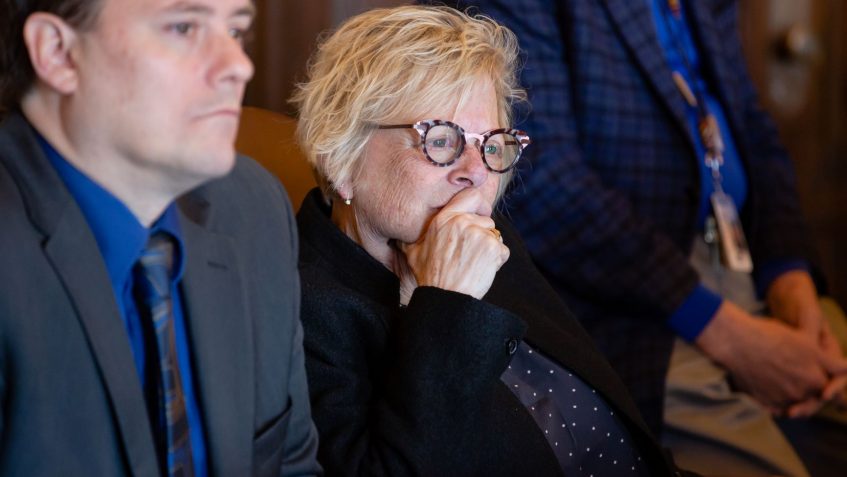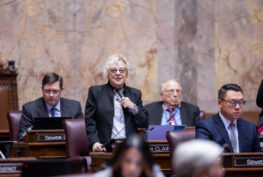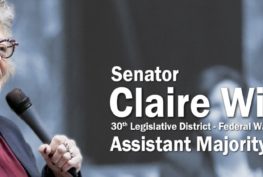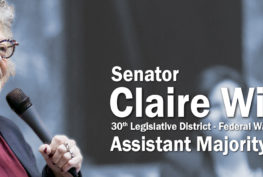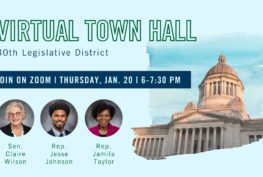The safety of you and your loved ones is of the utmost importance as we weather this unprecedented crisis. I hope you are well and doing what we all need to do to stay healthy.
The smartest thing we can do now is limit contact with others.
We are in a stage of peak contagion, when exposure to the virus is projected to double every five days, at least for the next few weeks. That makes it critical that all of us alter our normal behaviors and avoid contact with others unless absolutely necessary. This is the most effective way to break the chain of transmission; it will vastly reduce the number of people who are exposed, who test positive, or who develop life-threatening illnesses.
This is why Gov. Inslee has ordered the closure of restaurants, bars and other public places where groups of people congregate, and tonight issued a “stay home” order that bans social gatherings. Except to buy food and medical prescriptions, or other essential tasks, staying home is the best policy. The order also bans non-essential business activity, based on federal guidelines, and is effective for a minimum of two weeks.
Please listen to the experts.
- Maintain a distance of six feet or more from others.
- Anyone 60 years old or older, or who has an underlying medical condition, should self-isolate.
- We all must re-think our daily routines, from socializing with family and friends to attending customary group activities. It won’t be fun, but it won’t be forever and it will make a critical difference. The inconvenience we endure today may truly save a life several weeks from now.
- It’s times like this that we need more than ever to be there for each other. Community is our lifeline. We can call or text or email family, friends, neighbors and anyone else we know who might need help or reassurance. Even as we keep our distance physically, we can be closer than ever to each other emotionally.
We are doing everything we can to help at the state level.
As the challenges of the coronavirus became known, my colleagues and I in the Legislature appropriated funding to make sure our state and local health departments have the full resources they need to respond to the pandemic, and stand ready to take further action as necessary. So far, we have added $200 million to the state operating budget to:
- support monitoring, testing and local public health response;
- expand unemployment insurance for people who are quarantined;
- increase access to health care coverage by opening enrollment for anyone who does not currently have health insurance; and
- mitigate catastrophic losses at local businesses, for employees as well as employers.
In addition, we took measures to:
- ensure that people receiving unemployment insurance can continue to do so even if they cannot meet the work search requirements due to quarantine;
- support businesses that rehire employees who had to go on unemployment insurance because of the coronavirus emergency;
- reimburse nursing homes that aid in the coronavirus response;
- allow school employees to maintain health insurance eligibility for the rest of the school year even if they come up short of required work hours due to this emergency;
- adopt a 30-day statewide moratorium on evictions;
- encourage utilities to suspend shut-offs and waive late fees for out-of-work customers;
- authorize flexibility on state tax collections and waive late fees on licensing renewals; and
- provide flexibility to allow high school seniors to graduate this year if they were on track for graduation before the emergency declaration.
Beyond that, legislators and legislative employees are teleworking to reduce and contain the spread of this virus. This will continue until it is safe for people to congregate again.
State agencies, meanwhile, are taking action to help the people and businesses who are the most direly impacted. The governor’s office has assembled a central list of resources here.
The state Department of Health, in particular, is responding to increased demands for health care workers by registering licensed volunteer health practitioners as allowed by the Volunteer Emergency Health Practitioner Act. We passed this act in 2018 to be prepared for exactly the sort of challenges we face now.
If you suspect you may have coronavirus:
- Call your doctor – do not go to the hospital. Your doctor will make an assessment about next steps, and many are using telehealth options. If you require a COVID-19 test, your doctor will contact public health officials to arrange a test.
- If you have symptoms and do not have a doctor to call, you can call the state Department of Health call center at 800-525-0127.
- If you live in King County and believe you were exposed to a confirmed case of COVID-19, or if you are a healthcare or homeless center provider with questions, you can call the King County Novel Coronavirus Call Center at 206-477-3977. Interpreters are available.
- If you have general questions about COVID-19 or Washington State’s response, please call the Washington State Department of Health call center: 1-800-525-0127. Phone lines are currently staffed from 6 am to 10 pm, seven days a week, interpreters are available.
Other help is available to address different needs.
- If an employer has had to temporarily shut down operations, workers may be eligible for unemployment benefits and the employer may receive relief of benefit costs.
- If workers are asked to isolate or quarantine by a doctor or health official, they may receive unemployment benefits while they are temporarily away from work. And the Legislature has waived the requirement that people in this situation must be actively searching for work.
- Recognizing the serious threat of coronavirus, the Washington Health Benefit Exchange has opened a special enrollment period for health insurance through April 8. Call 1-855-923-4633 between 7:30 a.m. and 5:30 p.m. Monday through Friday.
- The state Insurance Commissioner has required all insurance plans to cover coronavirus tests with no cost-sharing and no prior authorization requirement for people who meet the CDC criteria for testing. The commissioner has also required insurance plans to allow enrollees to refill their prescriptions early one time in order to maintain an adequate supply. You can find more insurance updates at this link.
- With public schools closed for the response, you can find details and updates from the state Superintendent of Public Instruction here.
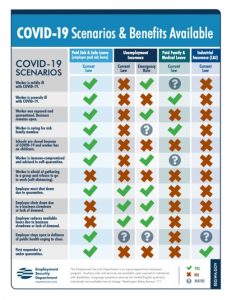
Other useful resources:
- Washington State’s official COVID-19 website
- The Washington State Department of Health Novel Coronavirus website can be translated into 15 languages including Spanish, Somali, Vietnamese, Russian, Korean and more.
- King County has information available on its website in 15 languages as well.
- Tacoma-Pierce County Health Department
- Centers for Disease Control and Prevention
- Association of WA Business (for small business owners)
These are challenging times, and we are being tested — as individuals, as households, as a community. And I know we will take care of one another and see this through.
![]()
